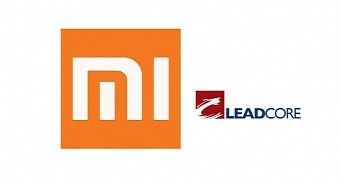Not so long ago, all smartphones that were launched on the market relied on chips equipped with cores from the ARM Cortex garden. However, that’s slowly starting to change.
More and more companies, but most notably Samsung and Qualcomm, have been said to be planning silicone pieces with their own custom cores on the inside. And today we get word of a third player looking to take the plunge. According to Wccftech, Xiaomi has also taken up an interest in custom SoCs.
Earlier today we were telling you about the upcoming Snapdragon 820 processor, which will supposedly be built on a 14nm FinFET process. It has been revealed that, instead of relying on the usual stock ARM cores, Qualcomm will go ahead and use its own ARMv8 architecture called Kyro.
A few months ago, it was also reported that Samsung was working on a next-gen Exynos processor with custom cores dubbed Mongoose.
These cores are likely to be clocked at 2.4GHz and will be able to offer a 45% performance increase over the current Exynos 7420.
Xiaomi joins the custom SoC core race
Now, Xiaomi has also partnered up with Leadcore, which is responsible for delivering the modem inside the Redmi 2A handset, in order to produce custom chipset designs for the Chinese phone market. Just like Samsung and Qualcomm, Xiaomi is also looking to be less reliant on suppliers for SoC designs.
This is a bold move from a device maker no one had heard of a few years ago. The Chinese company has yet to make a name for itself outside the confines of Asia and other emerging markets, but as it has been reported before, the device maker does have plans to make a debut in one of the world’s most competitive environments, the US, at some point in time.
Custom chipset designs might be a big step forward for Xiaomi, who is still struggling to make an impression on more advanced markets.
The company is also prepping its next-gen Mi5, which will apparently arrive with a Snapdragon 820 processor under the hood. So naturally, it would be a while before the company’s reliance on Qualcomm is greatly diminished.

 14 DAY TRIAL //
14 DAY TRIAL //